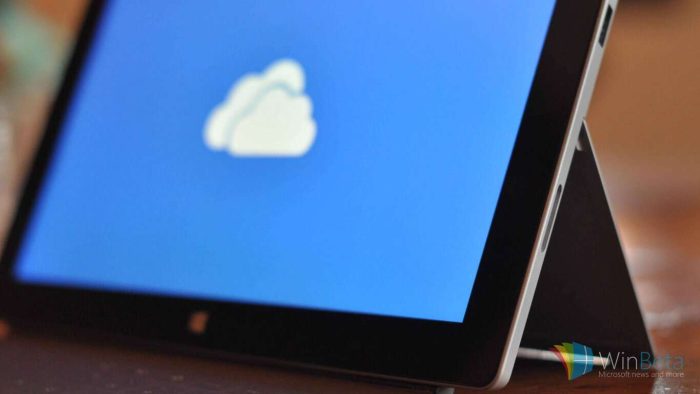Microsoft's Chris Capossela: We handled OneDrive communications "badly"
3 min. read
Published on
Read our disclosure page to find out how can you help Windows Report sustain the editorial team Read more

In this past week’s Windows Weekly, the Microsoft-centric podcast hosted by Leo LaPorte, special guest and Chief Marketing Officer Chris Capossela delivered a fun and frank assessment of what’s becoming a new Microsoft under the leadership of CEO Satya Nadella. He talked about Windows Phones (and to clarify, Capossela misidentified the Lumia 550 as the 650, he didn’t accidentally reveal a new Microsoft product, something he’s been known to do), about HoloLens and creating Christmas caroling commercials, and about OneDrive. It’s a great interview and well worth watching.
But among all the talk about the new Microsoft and the changing culture, Capossela offered some behind the curtain insights into one recent episode that left Microsoft with egg on its face.
Beginning at about 1:07:00 of the podcast, LaPorte introduces the subject of the botched communication around scaling back OneDrive’s free subscriptions and how Microsoft handled it. “Badly, as it turns out”, Capossela replies and goes on to offer an interesting and somewhat revealing version of the events leading up to the OneDrive announcements.
“OneDrive takeback is a way to anger a bunch of diehard fans, particularly in the way we did it. In that case, if anyone had seen the math, I don’t think they would have questioned the economics.
Why did we put ourselves there in the first place, that was another mistake that we had made a year earlier. The economics were totally unsustainable, the way we did the communications was very rushed, because of a major publication that was going to publish something that was very damaging, and was not true. And so we felt like we had to get in front of it and we just weren’t ready.
We had given ourselves a couple more months to get everything lined up, all in one fell swoop. OneDrive for Business, OneDrive for consumer, how we grandfathered people, blah, blah blah.
We just were not ready. But the alternative of having a very damaging, borderline false story run in a massive publication, Frank (Frank Shaw, Microsoft’s head of communications) and I just couldn’t let that happen. We just didn’t do a good enough job in the sprint to beat the story to get the communications in the shape that they needed to be.
The economic decision was easy. We made the economic decision, incorrectly, a year earlier, and then when we saw the usage just take off and you have 400 million or whatever it is, and you’re upgrading a gazillion Windows 10 machines, and they’re all using OneDrive, which is great, but you’ve got to use it in a way that’s economically sustainable. Those were some of the things that went into it.”
So what did we learn from Capossela? Apparently when you offer people massive amounts of free storage, they take advantage of it, and it turns out that’s not economically sustainable, who knew?
Since the initial communications disaster, Microsoft has indeed pulled their messaging together enough to offer OneDrive users at least some of their storage back, and hopefully Microsoft and Capossela have learned something about the importance of openness in communicating hard decisions (and that the company makes better decisions in the first place) moving forward.








